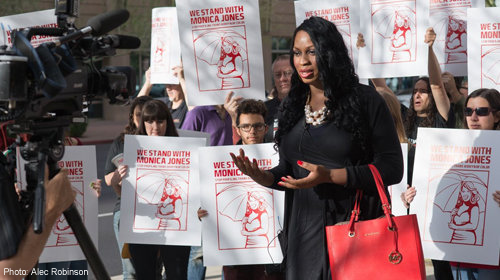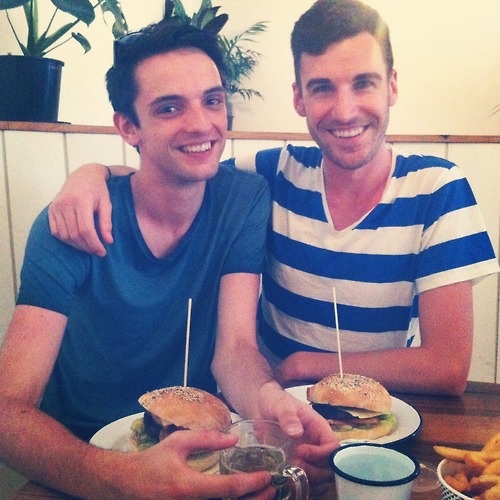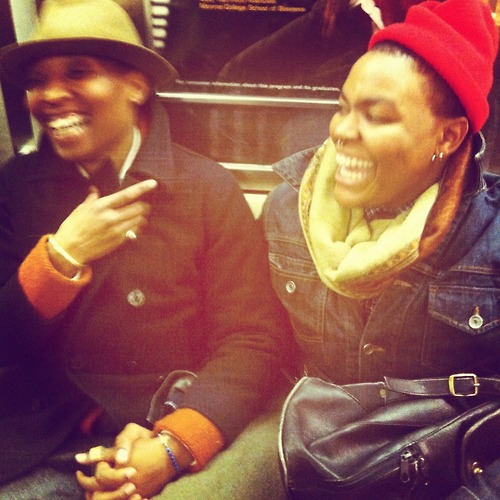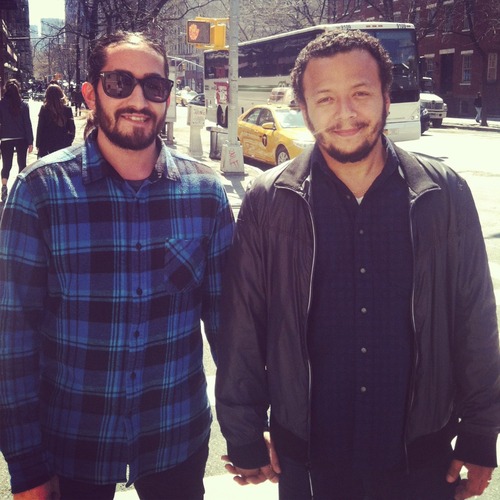
Transgender women of color face some of the highest rates of street harassment and violence of any demographic. Here are two of these women who need our help:
“When Monica Jones left her house on the evening of May 17, 2013, she expected to hang out at a local bar and restaurant and meet up with some friends. But for transgender women of color, just walking down the street can be a criminal act.
Especially in Phoenix, Arizona, where literally “any bodily gesture” can be sufficient evidence that you are intending to engage in prostitution.
When an undercover officer saw Monica Jones, a black transgender woman, walking down the street just a few blocks from her house, in an area that the officer described as being “known for prostitution,” that was enough to convince him that she intended to engage in prostitution. It was on that basis that he approached and stopped her.
In April of this year, Monica was convicted of violating this overbroad and vague law. Today she appeals that conviction, and the ACLU, along with other advocacy and civil rights organizations, filed a brief in support of her appeal.
We #StandWithMonica because transgender women of color should be able to walk down the street in their neighborhoods without being arrested, or worse, for simply being themselves.”
“A trans woman of color, Eisha Love, is currently facing attempted murder charges after she was attacked by two men outside a gas station on Chicago’s West Side. According to a Change.org petition calling for Love’s release from prison with over 2,000 signatures at this time, she was with a friend when two men began harassing them with slurs and epithets, and Love was struck in the face.
As Love and her friend rushed to escape the attack in their car, one of their attackers standing near the vehicle was permanently injured. Later, Love turned herself in for the injury and was charged with 1st degree attempted murder. If convicted, she faces 10 years in prison….You can read more about Eisha’s story and support her by signing and sharing this Change.org petition, and by using hashtag #FreeEisha on social media”



